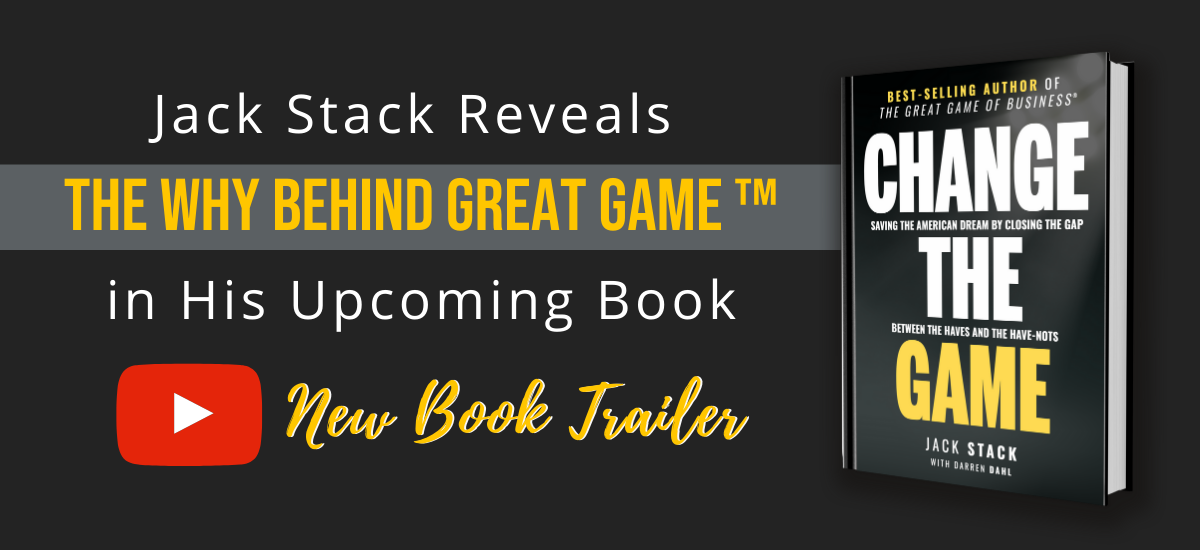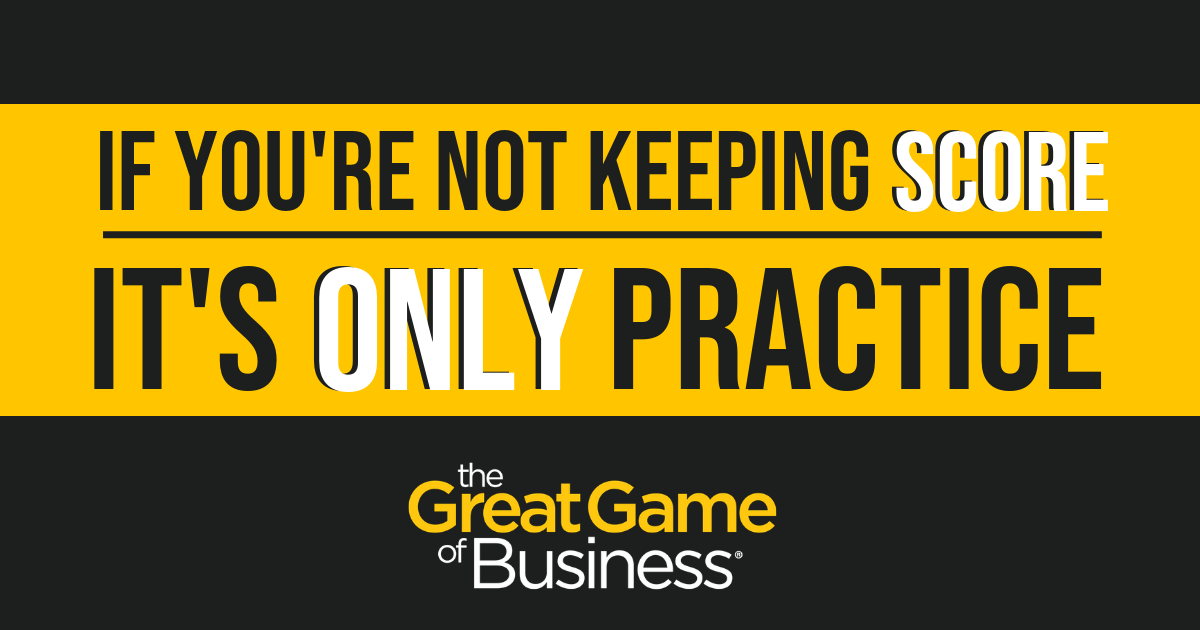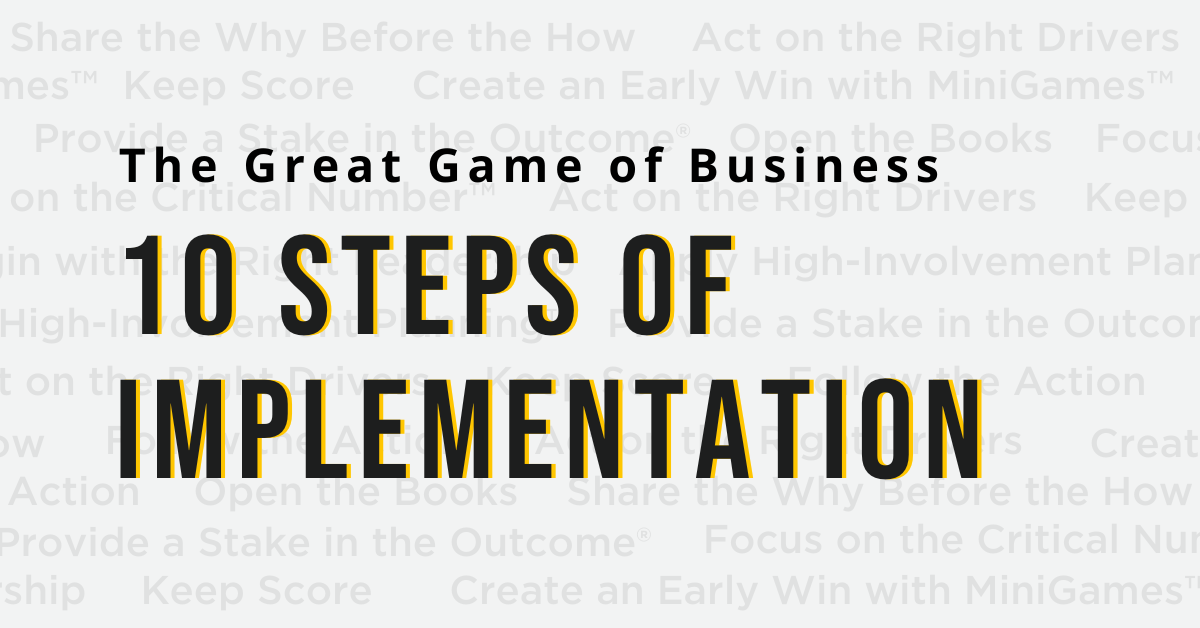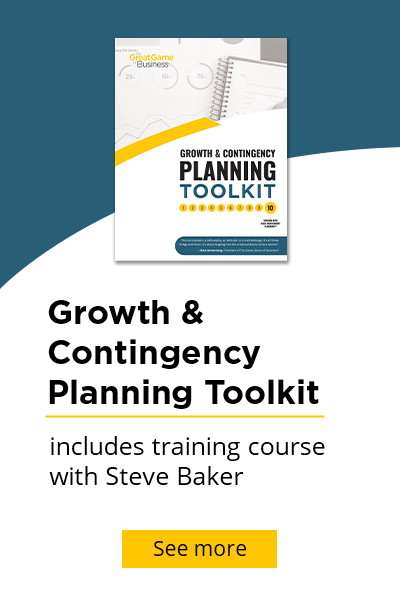You might have heard that Jack Stack is releasing his third book. His original bestselling book, The Great Game of Business, has inspired companies and business owners across the world with a life-changing business operating system that educates your people in the rules of business, rallies them around a common goal, empowers them to see and improve the score, and engages them by giving them skin in the game. It is in its 34th printing, was recently selected as one of the "100 Best Business Books of All Time," has been cited in 140 scholarly articles and 100 business books, and has been published in 14 languages. Now Jack is releasing his new book, Change the Game: Saving the American Dream By Closing the Gap Between the Haves and the Have-Nots to share the Why behind the Great Game of Business® operating system:
Read More
Winners are fanatics about keeping score. They understand that if you’re not keeping score, you’re not playing for real. Whether in business or in a game, the primary objective of keeping score is to consistently inform the players if they are winning or losing and who is accountable... moving the process of keeping score from “them measuring us” to “us measuring ourselves.” Keeping score gives people the critical feedback they need to make the right adjustments, improve performance, and win the game.
Read More
Meeting together as a team to discuss the financials and critical elements of your business is a vital part of The Great Game of Business®, but more importantly, it is an opportunity to focus on the people responsible for those numbers and the story behind the numbers. Successful workplace Huddles affect all team members' mindsets and influence your team's performance in the financials. Here are 8 tips to help you get the most out of your Huddles:
Read More
If you approached an employee at your company and asked them who creates the financial numbers in your company, what would they say? Odds are, they’d probably point to the accounting department. Sure, accounting has a lot to do with your company financials, but they don’t really create them. Your employees create the financials through the decisions they make and the actions they take. So how do you help your employees understand their part in creating the numbers and how their actions can affect those numbers? We recommend you follow the five golden rules of teaching employees about company financials:
Read More
Taking the leap into open-book management and a transparent culture can be intimidating, so we asked the best of the best in open-book why they implemented the Great Game of Business®, and what motivates them to continue investing in The Game.
Read More
In more than 35 years practicing The Great Game of Business® at SRC, as well as three decades helping thousands of companies implement The Game in their own companies, we have determined the fastest, most efficient and most reliable path to Rapid Financial Results and Lasting Cultural Change™ follows a set process. We honed and developed the 10-Step Approach to GGOB Implementation to guide companies implementing The Great Game of Business in their organizations.
Read More
Wouldn’t it be nice if you just had a checklist that led you through the rules of making your staff Huddles work every time? Well, we thought it might be nice too, so we compiled the following steps to help you make the most of your staff Huddles.
Read More
As the old saying goes, opposites attract—which can be especially true in business. When Reed MacNaughton and Dan Cocozza met back in college, however, they became friends based on what made them alike. They were both engineering students who took all the same classes together at Union College in Schenectady, NY. They also pledged the same fraternity, Sigma Phi, and when they graduated in 2004, they both moved to New York City, where they roomed together as they started jobs as structural engineers. Later, they both became entrepreneurs when they each founded their own business: MacNaughton moved back to his home state of Connecticut to start a residential construction firm while Cocozza stayed in the big city. They were both very successful in their ventures.
Read More
As a business owner, you know it is important to take the time to assess your strengths, weaknesses, opportunities, and threats (SWOT) to your business in order to set goals and priorities for the upcoming fiscal year. But, how do you know which one thing is the top priority to fix? At Great Game™, we talk a lot about the Critical Number™. By definition, the Critical Number is the operational or financial number that represents a weakness or vulnerability that – if not addressed and corrected – will negatively impact the overall performance and long-term security of the business. Overall, the Critical Number is the heart of The Great Game of Business®. Each of our three fundamental processes (Know & Teach the Rules, Follow the Action & Keep Score and Provide a Stake in the Outcome®) revolves around educating, involving and engaging employees to improve the Critical Number.
Read More
A workplace Huddle is more than just a staff meeting. Discussing the financials and critical elements of your business is a vital part of the Great Game of Business®, but more importantly, the Huddle is an opportunity to focus on the people responsible for those numbers and the story behind the numbers. In the Huddle Cycle, numbers are forecast and shared in a series of meetings from daily departmental check-ins to weekly company-wide gatherings, driving employee engagement and serving as a self-correcting measure to keep the company on the path toward achieving its goals. To better understand what's involved in creating a Huddle rhythm, let's break down the three main types of workplace Huddles: the Pre-Huddle, the Management Huddle, and Company-Wide Huddle.
Read More

.png)




.png)



.png)






.png)




-5.png)

